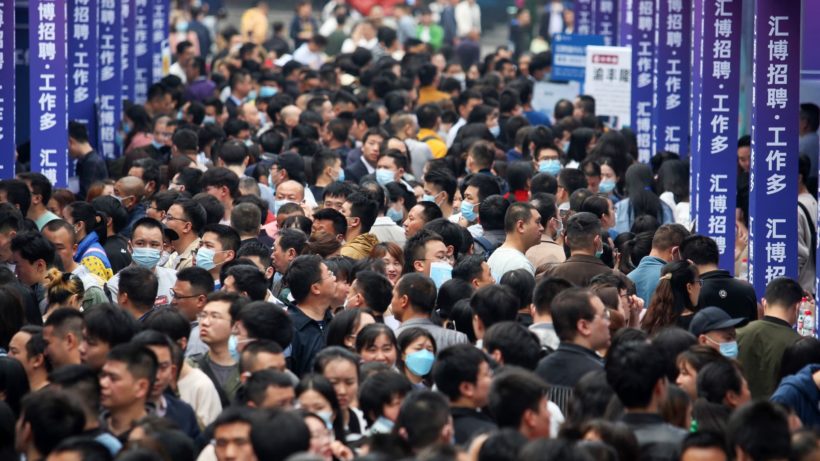
Str | Afp | Getty Images
The global economy is on course to record its worst half decade of growth in 30 years, according to the World Bank.
Global growth is forecast to slow for the third year in a row in 2024, dipping to 2.4% from 2.6% in 2023, the organization said in its latest “Global Economic Prospects” report released Tuesday.
Growth is then expected to rise marginally to 2.7% in 2025, though acceleration over the five-year period will remain almost three-quarters of a percentage point below the average rate of the 2010s.
And despite the global economy proving resilient in the face of recessionary risks in 2023, increased geopolitical tensions will present fresh near-term challenges, the organization said, leaving most economies set to grow more slowly in 2024 and 2025 than they did in the previous decade.
“You have a war in Eastern Europe, the Russian invasion of Ukraine. You have a serious conflict in the Middle East. Escalation of these conflicts could have significant implications for energy prices that could have impacts on inflation as well as on economic growth,” Ayhan Kose, the World Bank’s deputy chief economist and director of the Prospects Group, told CNBC’s Silvia Amaro.
The bank warned that without a “major course correction,” the 2020s will go down as “a decade of wasted opportunity.”
Developing economies to be hit hardest
On a regional basis, growth this year is set to weaken most in North America, Europe and Central Asia, and Asia-Pacific — mainly on account of slower expansion in China. A slight improvement is forecast for Latin America and the Caribbean, coming off a low base, while more marked pickups are expected in the Middle East and Africa.
Still, developing economies are set to be the hardest hit on a medium-term basis as sluggish global trade and tight financial conditions weigh heavily on growth.
“Near-term growth will remain weak, leaving many developing countries — especially the poorest — stuck in a trap: with paralyzing levels of debt and tenuous access to food for nearly one out of every three people,” Gill said.
Developing economies are now expected to grow by just 3.9% in 2024, more than 1 percentage point below the average of the previous decade. By the end of the year, people in about 1 out of every 4 developing countries and about 40% of low-income countries will still be poorer than they were on the eve of the Covid-19 pandemic in 2019, the organization said.
The bank said the data showed that the world was failing in its goal of making the 2020s a “transformative decade” in tackling extreme poverty, major communicable diseases and climate change. However, it added that there was an opportunity to turn the tide if governments act quickly to increase investment and strengthen fiscal policy frameworks.
“Investment booms have the potential to transform developing economies and help them speed up the energy transition and achieve a wide variety of development objectives,” Kose said in the report, released ahead of the World Economic Forum next week — where international business and political leaders gather at the annual meeting to discuss global politics, economics and social issues.
“To spark such booms, developing economies need to implement comprehensive policy packages to improve fiscal and monetary frameworks, expand cross-border trade and financial flows, improve the investment climate, and strengthen the quality of institutions,” he said.
“That is hard work, but many developing economies have been able to do it before. Doing it again will help mitigate the projected slowdown in potential growth in the rest of this decade.”

